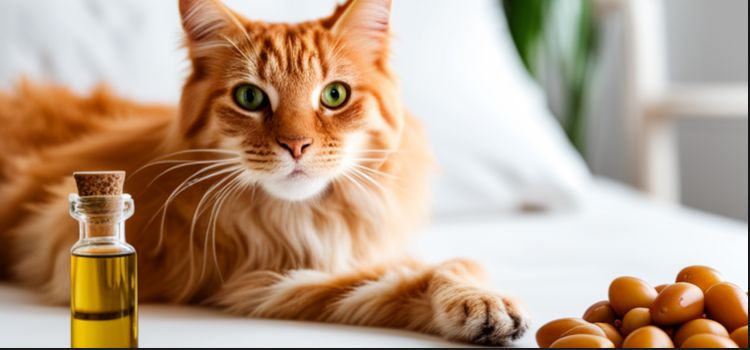As an Amazon Associate committed to the mission of improving the lives of our readers, Live-Clear.com receives a small commission from eligible purchases made through our affiliate links. This revenue enables us to keep producing insightful articles and other material.
Provolone cheese is a delicious and versatile dairy product many enjoy in our sandwiches, salads, and pasta dishes. It’s known for its nutty and slightly tangy flavor, making it a popular choice for many culinary creations. However, as a dog owner, you may wonder whether it’s safe to share this tasty treat with your furry friend. In this comprehensive guide, we will explore the topic of feeding provolone cheese to dogs, its potential benefits and risks, and provide valuable insights into how to ensure your pet’s safety and well-being.

Provolone Cheese: A Quick Overview
In Italy, they make a semi-hard cheese called provolone that they use cow’s milk to make. It’s available in mild and sharp varieties with distinct flavor profiles. This cheese contains essential nutrients like calcium and protein, which can benefit humans. But can dogs also enjoy these benefits? While provolone cheese may be enjoyed by some dogs in moderation, it is essential to note that it should not be a regular part of their diet. Dogs have different nutritional needs than humans, and consuming too much cheese can lead to digestive issues such as diarrhea or upset stomach. Additionally, some dogs may be lactose intolerant and unable to digest dairy products like provolone cheese properly. Therefore, it is crucial to consult with a veterinarian before introducing any new foods into your dog’s diet to
Feeding Provolone Cheese to Dogs
Before we explore the safety and potential benefits of feeding provolone cheese to dogs, it’s essential to understand how to introduce this cheese into your dog’s diet correctly:
- Moderation: If you decide to offer provolone cheese to your dog, do so in moderation. You only need a little bit as a special treat occasionally.
- Watch for Lactose Intolerance: Dogs, like some humans, can be lactose intolerant. Watch for any signs of upset stomach, diarrhea, or gas when introducing dairy products, including provolone cheese, to your dog’s diet.
- Unseasoned and Plain: Always provide your dog with plain, unseasoned provolone cheese. Avoid flavored or spiced varieties that might contain ingredients harmful to dogs.
These ingredients can include onions, garlic, or certain spices that can be toxic to dogs. Stick to plain provolone cheese to ensure your dog’s safety and health. Additionally, remember that cheese should only be given as an occasional treat and not as a regular part of their diet to avoid any potential digestive issues.
Now, let’s explore whether provolone cheese is safe for dogs:
Is Provolone Cheese Safe for Dogs?
Provolone cheese is not inherently toxic to dogs, but it’s essential to exercise caution and consider your dog’s specific dietary needs and health. The following are some important considerations that should not be overlooked:
- Lactose Intolerance: Dogs, in general, have a limited ability to digest lactose, the sugar found in milk and dairy products. Many canines get stomach problems after eating dairy since they can’t digest lactose. It’s essential to monitor your dog for any adverse reactions when introducing provolone cheese.
- High-Fat Content: Provolone cheese, like many other cheeses, is relatively high in fat. Dogs can develop obesity, pancreatitis, and other health problems from overeating fat. Don’t overfeed your pet; instead, pay attention to serving sizes.
- Salt Content: Some types of provolone cheese can be pretty salty, which may lead to sodium toxicity in dogs. High sodium levels can cause excessive thirst, increased urination, and potentially lead to salt poisoning.
- Cheese Ingredients: Ensure that the provolone cheese you offer your dog is free of harmful ingredients such as garlic, onions, or added spices, which can be toxic to dogs.
It is also important to note that while provolone cheese can be a tasty dog treat, it should not substitute for a balanced diet. It is best to consult with your veterinarian before introducing any new foods into your dog’s diet to ensure their overall health and well-being.
Benefits of Provolone Cheese for Dogs
While it’s essential to be cautious, there are potential benefits to feeding provolone cheese to your dog when done in moderation:
- Protein: Provolone cheese is a good source of protein, which is essential for your dog’s muscle health and overall well-being. Protein is vital for the growth and repair of tissues.
- Calcium: Calcium is another essential nutrient found in provolone cheese. It is necessary for strong bones and teeth in dogs. However, remember that there are other, more dog-friendly sources of calcium.
- Taste and Motivation: Cheese is often used as a high-value treat in dog training because of its enticing taste. A small amount of provolone cheese can be an effective tool for reinforcing good behavior during training sessions.
In addition to its taste, provolone cheese can also provide dogs with a sense of motivation during training sessions. The unique flavor and texture of the cheese can help keep dogs engaged and focused on learning new commands or tricks. However, it is essential to use provolone cheese in moderation and consider any potential dietary restrictions or allergies your dog may have.

Risks and Considerations
Before introducing provolone cheese into your dog’s diet, it’s crucial to be aware of potential risks and considerations:
- Lactose Intolerance: As previously mentioned, many dogs are lactose intolerant. Even a tiny amount of provolone cheese can lead to digestive discomfort, including diarrhea and gas.
- High Calories and Fat: Provolone cheese is calorie-dense and high in fat. Overindulgence can lead to obesity, pancreatitis, and other health issues. If you choose to give your dog provolone cheese, ensure that it’s just a tiny, occasional treat.
- Sodium Levels: Some provolone cheese varieties are saltier than others. High sodium intake can lead to excessive thirst and urination and may result in sodium toxicity. Always opt for low-sodium types if you feed your dog this cheese.
- Dental Health: Cheese, like many other dairy products, can stick to a dog’s teeth, potentially leading to dental problems if not properly cleaned. Ensure you maintain your dog’s dental hygiene.
Regularly brushing your dog’s teeth and providing dental chews or toys can help prevent any potential dental issues caused by cheese consumption. Additionally, it’s essential to monitor your dog for any signs of discomfort or digestive upset after eating provolone cheese and consult a veterinarian if necessary.
Alternatives to Provolone Cheese
Suppose you decide that the risks associated with feeding provolone cheese to your dog are too significant or that your dog is lactose intolerant. In that case, there are plenty of alternatives to consider. Some dog-friendly cheese options include:
- Cottage Cheese: Cottage cheese is generally lower in lactose and fat, making it a safer choice for many dogs.
- Mozzarella Cheese: Mozzarella cheese is milder and softer in fat than provolone. It can be a better option for dogs if given in moderation.
- Dairy-Free Options: There are dairy-free cheese alternatives made from ingredients like nuts or soy, suitable for lactose-intolerant dogs.
- Dog-Specific Treats: Opt for treats designed for dogs to ensure they meet their dietary requirements.
- Fresh Fruits and Vegetables: Many dogs enjoy fruits and vegetables like apples, carrots, and blueberries as healthy, low-calorie treats.
These options provide essential nutrients and can be a refreshing alternative to traditional dog treats. However, it’s important to research which fruits and vegetables are safe for dogs to consume before offering them as treats. Also, permanently remove any seeds or pits that could harm your furry friend.
Additional Considerations
Beyond the immediate concerns of feeding provolone cheese to your dog, it’s essential to consider the broader aspects of your dog’s diet and lifestyle. The following are some additional aspects that need to be taken into account:
- Nutritional Balance: Dogs have specific dietary needs that must be met to ensure their overall health and well-being. While cheese can offer some benefits, it should be different from their regular dog food, which is formulated to meet these needs.
- Age and Size: The dietary requirements of dogs can vary depending on their age and size. There are distinct differences in the nutritional needs of puppies, adult dogs, and seniors. Smaller and larger breeds also have unique requirements.
- Health Conditions: If your dog has specific health conditions, such as diabetes, allergies, or gastrointestinal issues, it’s crucial to consult with your vet to determine an appropriate diet.
- Exercise and Activity Level: The amount of physical activity your dog gets can impact their dietary needs. Highly active dogs may require more calories, while sedentary dogs may need fewer.
- Water Intake: Ensure your dog can access fresh water, especially when providing high-salt foods like cheese. Their health is dependent on them receiving the appropriate amount of hydration.
- Training and Rewards: Treats like provolone cheese can be a valuable tool for training and behavior reinforcement. However, it’s essential to balance treats and their regular meals.
- Allergies and Sensitivities: It is essential to know that your dog may have dietary sensitivities or allergies. While cheese allergies are rare, they can occur. Talk to your vet as soon as possible if you experience any uncomfortable side effects.
- Consult with Your Veterinarian: Regular check-ups and consultations with your veterinarian are vital for maintaining your dog’s health. They can offer tailored dietary advice and help you make the best choices for your dog.
In addition, your veterinarian can also guide portion sizes and recommend specific brands or types of treats suitable for your dog’s dietary needs. By working closely with your veterinarian, you can ensure that your dog’s treat consumption is appropriately balanced with their regular meals, promoting overall health and well-being.

Conclusion
In conclusion, provolone cheese can be shared with your dog in moderation, but it’s crucial to be aware of the potential risks associated with this dairy product. Lactose intolerance, high-fat content, and sodium levels are considerations when offering provolone cheese to your furry friend. Remember to choose plain, unseasoned varieties and monitor your dog for adverse reactions. It is always recommended to consult with a veterinarian before introducing any new food into your dog’s diet, including provolone cheese. They can provide personalized advice based on your dog’s needs and health conditions. Additionally, incorporating a variety of healthy and balanced treats into your dog’s diet can help ensure they receive all the necessary nutrients without relying solely on cheese as a snack.
Frequently Asked Questions
Dogs can eat provolone cheese in moderation, but it’s essential to be cautious due to the potential risks associated with lactose intolerance, high-fat content, and salt levels. Continuously monitor your dog for adverse reactions when introducing new foods. It’s also important to note that some dogs may be more sensitive to dairy products, so it’s best to consult your veterinarian before adding provolone cheese or any other new food to your dog’s diet.
A small amount of provolone cheese as an occasional treat is sufficient. Avoid overindulgence, as the high-fat content can lead to health issues. Feeding your dog too much provolone cheese can cause weight gain and digestive problems. It’s recommended to limit the amount of cheese given to your dog and to choose low-fat options when possible.
Provolone cheese can provide protein and calcium, which benefit your dog’s muscle health and bone strength. Additionally, it can be used as a high-value training treat. However, it’s important to note that these benefits can be obtained from other, healthier sources as well. It’s always best to consult your veterinarian before introducing new food into your dog’s diet.
Risks include lactose intolerance, high calorie and fat content, and potential dental problems. High-sodium varieties can also lead to sodium toxicity. It is essential to know that provolone cheese contains lactose, which some dogs may be intolerant to. Additionally, the high calorie and fat content in provolone cheese can contribute to weight gain and potential health issues.
Yes, many alternatives exist, including cottage cheese, mozzarella cheese, dairy-free options, and dog-specific treats. You can also offer fresh fruits and vegetables as healthy treats. These alternatives can provide a similar taste and texture to provolone cheese without the potential risks. It’s always best to consult with your veterinarian before introducing new foods into your dog’s diet to ensure they are safe and suitable for your pet.
As a responsible dog owner, it’s essential to prioritize your pet’s health and well-being when it comes to their diet. If you have any doubts or concerns about feeding your dog provolone cheese, consult with your veterinarian for personalized guidance. Additionally, explore alternative treats and cheese options that can provide the same flavor and satisfaction without the potential risks. Your dog’s happiness and health are worth the extra effort.
Amazon and the Amazon logo are trademarks of Amazon.com, Inc, or its affiliates.



